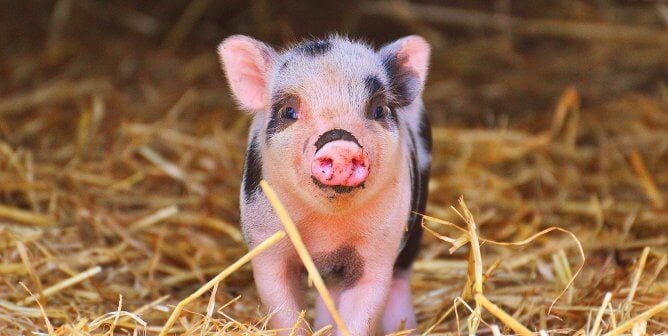Bill Maher Goes Apolitical to Save Dogs in Distress at Texas A&M University
Update (November 4, 2022): VICTORY! Texas A&M University has confirmed that it will release the nine healthy golden retrievers it had transferred from its failed canine muscular dystrophy laboratory to the veterinary school!
This momentous news comes after PETA’s hard-fought campaign that began with our shocking exposé of the school’s deplorable laboratory. Our relentless pressure ended its cruel breeding of dogs to develop this crippling disease and led to the release of more than 50 dogs.
But we never gave up on these nine betrayed golden retrievers. We campaigned hard—and now the dogs will be in homes before the end of the year.
You can read more about our win for the nine dogs here.
Originally posted on May 25, 2017:
Bill Maher has made a career of pushing boundaries with his comedy and political commentary—and he also happens to be a strong supporter of animal rights. Remember the cruel cat laboratory at the University of Wisconsin–Madison? Bill’s was one of the voices that brought much-needed public attention to the issue and, ultimately, helped PETA get that terrible lab closed down, ending the suffering of cats there.
Now he’s raising his voice once again—this time, for the sake of golden retrievers at Texas A&M University (TAMU) who are being bred to develop different types of muscular dystrophy, including Duchenne muscular dystrophy, which is particularly severe. These diseases ravage their bodies, causing progressive muscle wasting and weakness. The dogs may also have seizures and respiratory issues, and they often lose the ability to stand or walk. TAMU alumnus and Miami Dolphins quarterback Ryan Tannehill also sent a letter to his alma mater’s president in behalf of the dogs in distress there.
The man in charge of the experiments is TAMU’s Joe Kornegay. He has been experimenting on dogs for 35 years. But animals are not ours to experiment on, and it’s past time that TAMU acknowledged this and took suitable action.
After decades of tests on generations of debilitated and suffering dogs, there’s still no cure or treatment to reverse the course of this terrible disease in humans. So children afflicted with Duchenne muscular dystrophy continue to suffer. Analysis of muscular dystrophy studies using dogs has shown that there are serious pitfalls when trying to apply those results to humans.
Cutting-edge techniques that don’t involve experimenting on animals are available: Using skin cells from muscular dystrophy patients to develop disease-specific cures, developing ways to grow healthy human muscle cells, and creating human-relevant drug-screening platforms have led to the development of more promising therapies.
What You Can Do
Please urge TAMU to close its dog laboratories, stop breeding muscular dystrophy–afflicted dogs, release all dogs for adoption into good homes, and redirect resources toward humane research methods.




